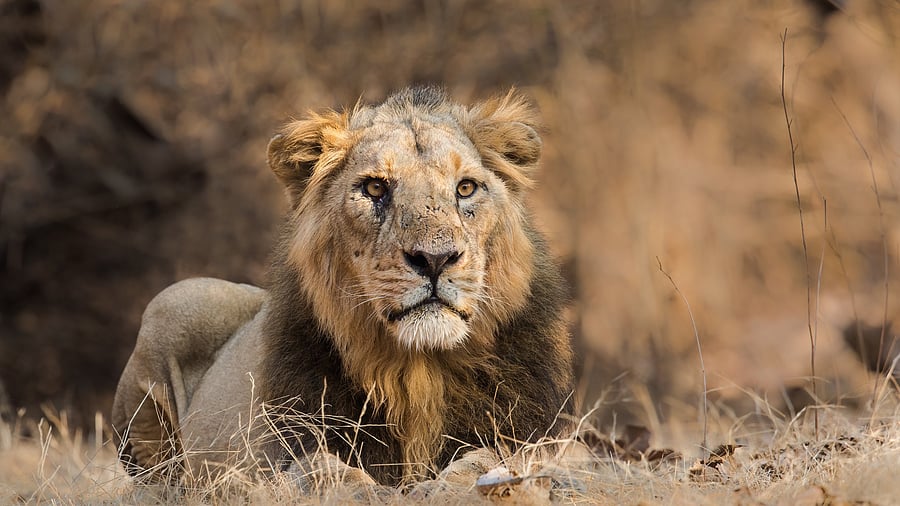
Representative image showing a male Asiatic lion
Credit: iStock Photo
Mangaluru: A six-year-old Asiatic lion, along with a wolf, two gharial crocodiles, and four rare birds — two silver pheasants and two yellow-golden pheasants — have arrived at the Pilikula Biological Park from the Nandankanan Zoological Park in Odisha as part of an animal exchange programme, with approval from the Central Zoo Authority.
Park Director H Jayaprakash Bhandary said in exchange, Pilikula Zoo will send four "dhole/wild dogs, four rare reticulated pythons, two Brahminy kites, three Asian palm civets, and two large egrets to the Nandankanan Zoo. The animals sent from Pilikula were all born within the zoo.
Animal exchange programmes are conducted to provide companions for solitary animals and to preserve pure bloodlines. Pilikula already has three lions, so one Asiatic male lion was brought in as a companion. The number of Asiatic male lions in Indian zoos is low, which is why it was sourced from the distant Nandankanan Zoo in Odisha, he said.
Two veterinary officers and eight caretakers from Nandankanan Zoo have accompanied the animals to ensure their proper care during transit. Both zoos will share responsibility for the animals involved in the exchange equally.
Pilikula houses approximately 1,200 animals, birds, and reptiles, making it one of India’s 18 large zoos. Agreements are in progress for future exchanges with Chhatbir Zoo in Punjab, Byculla Zoo in Mumbai, and the Madras Crocodile Bank. There are also plans to introduce unique species such as the Anaconda and the Humboldt penguin to Pilikula Zoo for public display. Special enclosures will need to be created to house the Humboldt penguins, which will incur significant costs, and donors have offered financial assistance.
Adding rare animals and birds to the zoo’s attractions is expected to significantly boost Pilikula’s revenue, helping it become self-sustaining, said the director. The newly arrived animals, reptiles, and birds will be kept in the quarantine ward for around 15 days to adapt to the local environment after necessary vaccinations and treatments. They will be available for public viewing after that.
In the history of Pilikula Zoo’s animal exchange programme, this is the longest distance that the animals have been transported — approximately 2,000 kilometres from Nandankanan Zoo in Odisha, setting a new record. Previously, the farthest animal exchange was conducted with Udaipur Zoo in Rajasthan, about 1,700 kilometres away.